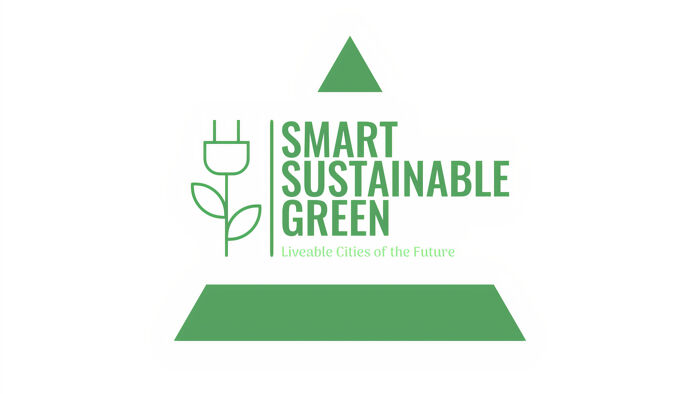Smart Sustainable Green Cities
Informing our urban future
The Smart, Sustainable and Green Cities research group brings together skilled academics working collaboratively across subject areas and with external stakeholders and organisations to inform our urban future. Our research mission is to tackle the associated challenges and enhance the liveability of Smart Sustainable Green cities in the future. The goal is to facilitate the development of these cities, and ensure a smooth transition to Net Zero goals while promoting social justice.
Our projects
Enhancing Urban Resilience and Sustainability through UK-India collaboration
Through this collaborative research project, we are working on advancing sustainable urban development, digital innovation, and community-driven solutions in the UK and India.
Find out moreBig Data Corridor
This collaborative project between BCU and Birmingham City Council aimed to support local businesses in developing new data driven products and services, creating new jobs and promoting economic growth.
Find out moreDeveloping the National Framework of Standards for Green Infrastructure in England
This research formed two projects funded by Natural England/Defra as part of their programme of work to develop of the national framework of standards for Green Infrastructure (GI) in England.
Find out moreSTEAM in the Curriculum
This was an Erasmus+ funded project led by BCU. It focused on critically exploring inter and transdisciplinary principles, characteristics, approaches, and methods to facilitate meaningful and impactful learning, collaborations and actions on complex societal challenges.
Find out moreChainAI: AI-Enabled Customised Workflows for Smarter Supply Chain Management
The ChainAI project aims to explore the feasibility of leveraging AI solutions to create custom workflows for SCM that optimise each stage of the process, improving efficiency, effectiveness, and performance in SCM and ultimately enhancing supply chain operations and outcomes.
Find out moreData Science Collaboration with Birmingham City Council
The Data Science collaboration project leverages data across Birmingham and beyond, empowering Birmingham City Council to make the best decisions based on the needs of their constituents.
Find out moreClimate Action in East Birmingham
Celebrating East Birmingham's rich industrial heritage while championing clean energy, community empowerment, and environmental resilience.
Find out moreDIATOMIC
The Intelligent Software Systems lab at BCU has secured a two-year, £6 million funding from UKRI (UK Research and Innovation) Innovate UK. DIATOMIC (Digital InnovAtion TransfOrMatIve Change) UK Accelerator is part of the wider West Midlands Innovation Accelerator funded by Innovate UK and the West Midlands Combined Authority.

Creating a menu of standards for green infrastructure in England
The importance of greening our cities and urban places has never been stronger. Researchers within the Smart, Sustainable, Green Cities theme have worked with Natural England to create a menu of standards for green infrastructure in England.

Innovation Festival 2025: How Can We Make East Birmingham Smart, Sustainable & Green?
At Innovation Fest 2025, we explored interdisciplinary approaches to co-designing smart, sustainable, and green (SSG) solutions for East Birmingham, with a particular focus on the Tyseley and Hay Mills area.

Meet the team
Our team comprises of interdisciplinary academics with expertise across computing, engineering and the built environment.
Publications
A Systemic Digital Transformation for Smart Net-Zero Cities: A State-of-the-Art Review
This paper presents a state-of-the-art review of digital transformation for developing smart net-zero cities, highlighting the significance of systems thinking and the key components of digital transformation including people, data, technology and process. Urban areas are experiencing increasing challenges from rapid growth and climate issues, making digital transformation a crucial strategy for enhancing sustainability and efficiency. In this context, systems thinking is essential, as it provides a holistic perspective that acknowledges the interdependence of urban sectors which can facilitate a more comprehensive, adaptable, and strategically integrated approach.
This review examines findings from 22 sources and proposes a framework to investigate and represent the necessity of a digital transformation approach that effectively balances these elements and promotes a systems thinking approach. Also, by examining the findings from a systems thinking perspective, this research analyses the potential of effective digital transformation to support the complex needs of smart net-zero city developments.
The findings indicate a widespread recognition of the digital transformation potential as a practical implementation strategy. It is imperative to formulate digital transformation strategies that are practical and comprehensively incorporate all elements: people, technology, processes, and data. Additionally, the review highlights the critical role of systems thinking in the development of these digital transformations as it facilitates the integration of interdependent urban sectors, including energy, transformation, and building, to achieve a holistic and integrated transformation.
Contact
For more information on the work of Smart, Sustainable, Green Cities please contact vahid.javidroozi@bcu.ac.uk or ensiyeh.farrokhirad@bcu.ac.uk.
